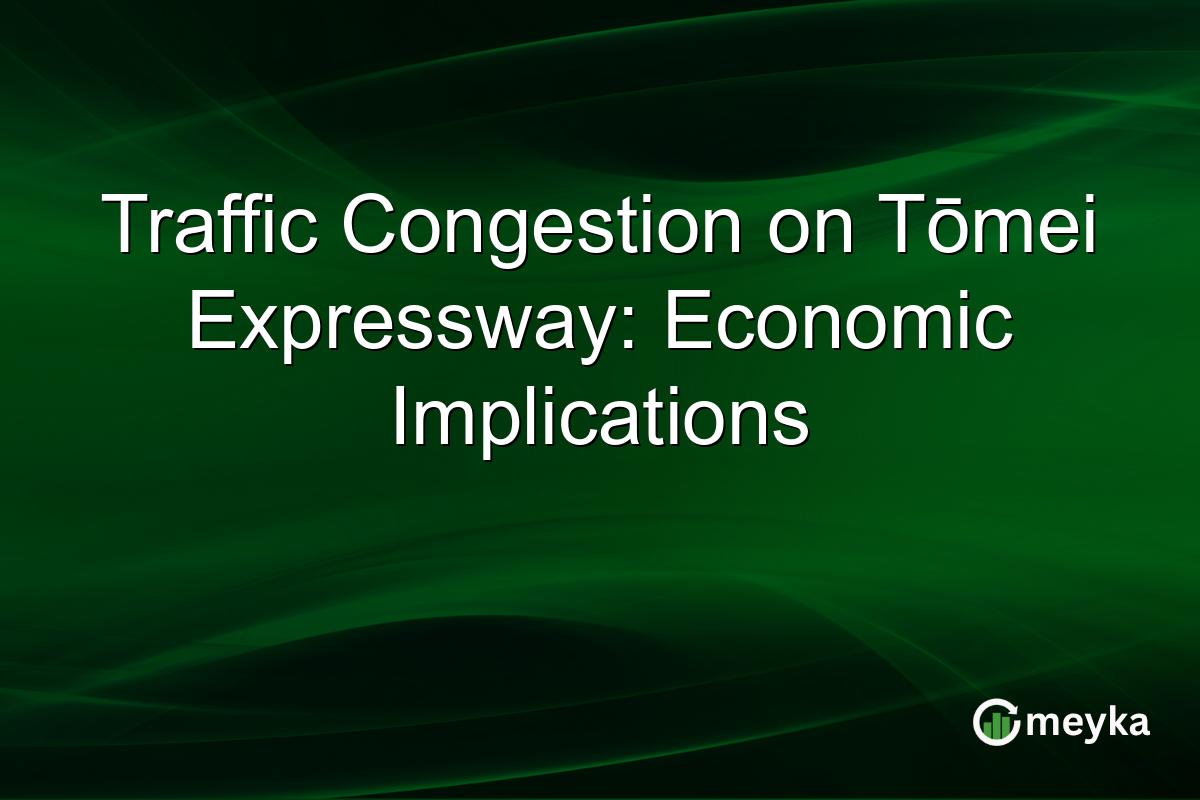Traffic Congestion on Tōmei Expressway: Economic Implications
Traffic congestion on Japan’s Tōmei Expressway is more than just a commuter inconvenience. This key transportation corridor is vital for both local and long-haul travel, impacting the economy significantly. As the expressway struggles with increased volumes, the broader economic implications become evident. Let’s explore how this congestion impacts commerce and daily life, affecting everything from transportation efficiency to consumer behavior.
The Impact of Congestion on Commerce
The Tōmei Expressway is a crucial artery for Japan’s logistics network. Increased traffic congestion affects the flow of goods, delaying deliveries, and increasing costs. Businesses reliant on timely shipments face disruptions, influencing inventory management and production schedules. Reports indicate delays can cost the Japanese economy billions of yen annually. For instance, delayed shipments can result in perishable goods spoiling, highlighting the need for efficient transport systems.
Effects on Consumer Behavior and Travel
Consumers are feeling the impact of Tōmei Expressway traffic during daily commutes and leisure travel. Increased travel times can discourage trips, affecting spending in retail and hospitality sectors. Commuters face longer travel times, reducing work-life balance and affecting productivity. This change in behavior indirectly pressures businesses to adapt, pushing for remote work options and flexible schedules to mitigate the impact.
Transportation Infrastructure Challenges
Japan’s aging infrastructure needs upgrades to support growing traffic demands. The challenges highlight the importance of investing in modern transportation solutions. The government is urged to consider both expansion and technological improvements such as smart traffic management systems. These upgrades could ease congestion and provide long-term economic benefits. Addressing infrastructure could improve both commercial efficiency and public satisfaction.
Investor Reaction and Market Sentiment
Social media platforms like X (formerly Twitter) indicate growing public frustration. A recent X post shows increased public demand for government action to address infrastructure issues. This sentiment reflects in market attitudes, where investors are keeping an eye on infrastructure investment opportunities. Improving the Tōmei Expressway could enhance investor confidence in related sectors. Public Sentiment on X.
Final Thoughts
The persistent traffic congestion on the Tōmei Expressway underscores significant economic implications. Businesses face increased costs and operational disruptions, while consumers change travel habits. The transportation infrastructure, vital for economic health, requires robust government intervention to accommodate future demands. Addressing these issues can prevent further economic strain and enhance Japan’s logistical capabilities. For continuous insights, tools like Meyka provide real-time data analytics that helps businesses understand such impacts better. Investing in infrastructure improvements can lead to economic resilience and increased investor confidence, shaping a more efficient future.
FAQs
Congestion increases delivery times and costs, impacting inventory and production schedules, and may result in lost revenue especially for perishable goods.
Potential solutions include expanding the expressway, implementing smart traffic management systems, and encouraging public transportation to reduce vehicular load.
Improving infrastructure supports economic growth by enhancing transport efficiency, reducing costs for businesses, and improving quality of life for commuters.
Disclaimer:
The content shared by Meyka AI PTY LTD is solely for research and informational purposes. Meyka is not a financial advisory service, and the information provided should not be considered investment or trading advice.






